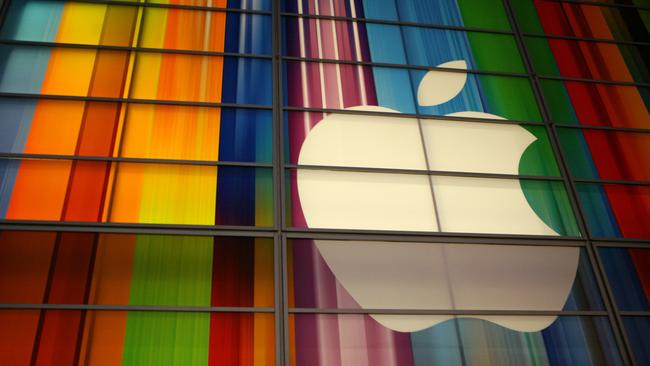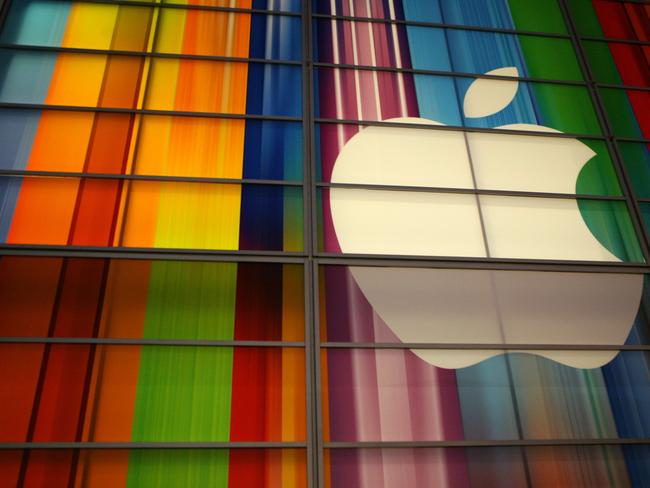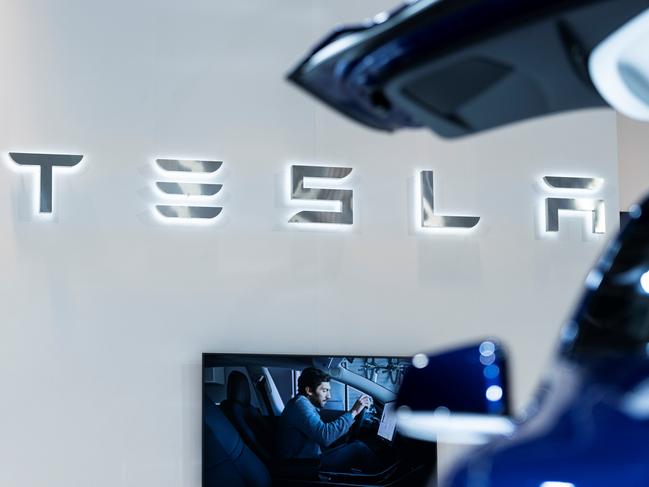Apple ‘preparing 75 million 5G iPhones’
The company is also preparing a new iPad Air with an edge-to-edge iPad Pro-like screen, and two new Apple Watch versions.

Hello and welcome to The Download, The Australian’s technology blog for the latest tech news.
4.30pm: Aussie businesses shift to subscription models
A new collaboration between international billing providers GoCardless and Zuora is set to drive a wave of international Australian tech exports, as more companies shun one-off payments for subscription models.
The integration will allow Australian businesses to more easily issue subscriptions via Zuora and collect payments by bank debit with GoCardless.
According to Zuora’s Subscription Economy Index, the subscription economy is significantly growing in the APAC region, with an annual revenue growth rate of 17.5 per cent, while the annual customer base growth rate is 11.6 per cent.
Zuora Vice-President and General Manager of the Asia-Pacific Region, Iman Ghodosi, said the trend was “about a fundamental return to customer relationships”.
“It’s the agility of the subscription model that uniquely positions businesses to adapt quickly to customer needs and provides them with consistent value - regardless of the economic climate,” said Ghodosi.
Zuora found globally, 50 per cent of all subscription companies are growing just as fast as they were before the pandemic, while 18 per cent are seeing subscriber growth rates accelerate. This trend is being reflected locally, with newly dubbed unicorn Siteminder and rostering software Deputy, attributing their international growth to subscription-based payments.
Evan Miller, Global Director of Billing and Collections at SiteMinder said adopting recurring payments was key to their growth into new markets where the company did not have a defined payments strategy.
“The way customers want to pay in different markets is fundamentally different. In Europe, bank debit is extremely prevalent. Our customers demanded it and now 70 per cent of our European customers choose to pay through GoCardless over credit card” he said.
Similarly, Head of Business Systems at Deputy, Scott Westbrook said the integration would help the company’s international growth by reducing “burden on internal teams [with] billing and bank debit payments in one place”.

As more Australians turn to subscription models, GoCardless reports it will double down on its presence in the Australian market after launching its Melbourne office in 2019. The direct debit payments company claims it has seen 250 per cent year-on-year revenue growth across its base of 2,500 merchants like Docusign, Survey Monkey and Expensify.
ANZ General Manager Carolyn Breeze said the market was the fastest-growing international region for GoCardless, reporting a growth rate six times faster compared to its UK launch.
“We know consumer payment behaviours are changing and Australians are more receptive to subscription-based products and services than ever. Across industries, consumers want to own less physical things in exchange for convenience, cost savings and flexibility.”
3.30pm: Apple ‘preparing 75 million 5G iPhones’
Apple has asked suppliers to make at least 75 million 5G iPhones for later this year, along with new Apple Watch models, a new iPad Air and a smaller HomePod, Bloomberg News reported on Tuesday.
The company expects shipments of these next-generation iPhones to reach as high as 80 million units in 2020, the report said, citing people familiar with the matter.

Apple is aiming to launch four new iPhone models next month with 5G wireless speeds, a different design and a wider choice of screen sizes, Bloomberg reported, adding lower-end phones are expected to be shipped sooner than the Pro devices.
Apple is also preparing a new iPad Air with an edge-to-edge iPad Pro-like screen, two new Apple Watch versions and its first over-ear headphones outside the Beats brand, according to the report here
The company has also been developing a new Apple TV box with a faster processor for improved gaming and an upgraded remote control, although it might not ship until next year, Bloomberg reported.
Apple did not immediately respond to a Reuters request for comment.
Reuters
9.30am: Apple, Tesla shares surge after split
High-flying shares of Apple and Tesla surged again on Monday as stock splits took effect and attracted more buying from investors.
Apple jumped over 4pc and Tesla rallied 10pc, elevating the electric car maker’s market capitalisation to over $US440 billion, making it more valuable than companies including Walmart and Johnson & Johnson.
Apple split its stock 4-for-1, while Tesla split its stock 5-for-1, with both companies saying they aimed to make their shares more affordable to individual investors.
Robinhood and other brokerages increasingly let customers buy fractions of individual shares, making the benefit of stock splits less obvious than in the past. Splits have become less common. Just three S & P 500 members announced splits in 2020, down from

12 in 2011, according to S & P Dow Jones Indices.
The success of the splits for Apple and Tesla could lead CEOs of other companies with high-priced stocks to consider their own splits.
Both Silicon Valley companies have massive followings among individual investors. In recent sessions, Apple and Tesla were the two most-traded stocks at Fidelity’s brokerage, with customers overwhelmingly buying.
Tesla’s stock has surged over 70pc since its split was announced on August 11. Apple has jumped over 30pc since it announced its split on July 30, along with a blowout quarterly report.
Trading at over $US2,000 on Friday on a split-adjusted basis, Tesla’s stock had among the highest price tags on Wall Street. Other companies with quadruple-digit stock prices included Amazon, at over $US3,400, Google-parent Alphabet, at over $US1,600, and Chipotle Mexican Grill, trading at over $US1,300.
Apple’s previous stock split was 7-for-1 in 2014, and this month’s split was its fifth since going public in 1980.
Apple and Tesla’s share splits applied to shareholders of record on August 24.
Apple’s market capitalisation has surged above $US2 trillion, and it overtook Saudi Aramco as the world’s most valuable publicly listed company.
Tesla’s stock has jumped almost 500pc this year, while shares of General Motors Co and Ford Motor Co fell due to fallout from the COVID-19 pandemic.



To join the conversation, please log in. Don't have an account? Register
Join the conversation, you are commenting as Logout